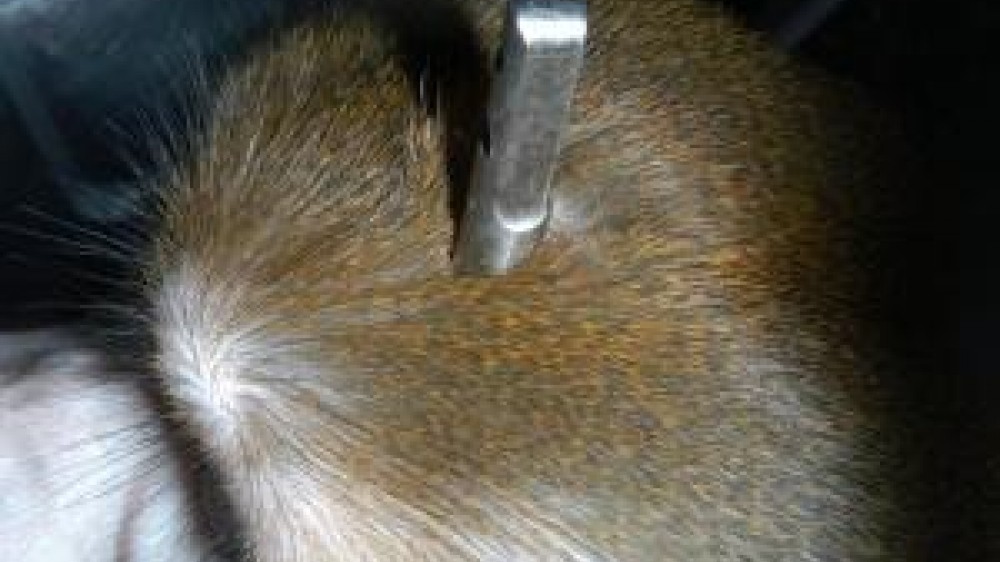Applying advances in human prosthetics to chronic implants used in macaque neuroscience

We are pleased to announce a new strategic award to Professor Alex Thiele, Newcastle University, for a project aimed at refining the design of cranial implants used in neuroscience studies with macaques, in order to improve the welfare of these animals.
Brain function is often studied in animals by recording the electrical signals that are generated by single neurons that make up the brain’s functional networks. Macaque monkeys are used as models of human brain function, and are typically implanted with two devices in order for stable neural recordings to be made – a post to restrain the head and a chamber to access the brain. Head fixation is also required for functional magnetic resonance imaging.
Use of modern biocompatible materials has helped to improve the integration of such devices with the bone of the skull, but they often suffer from imperfect skin closure around the part of the implant that is exposed, which can lead to infection and skin retraction. In the worst cases, where infections prove difficult to clear, bone necrosis can lead to loosening and failure of the implant. Our 2016 strategic award call challenged scientists to develop and validate novel approaches to address these animal welfare concerns and scientific limitations.
The new award will exploit recent advances in the design of human percutaneous (extending through the skin) prostheses, such as the use of porous materials and perforated flanges (ridges or rims on the implant), and apply these to widely used cranial implant designs used in macaque neuroscience laboratories. The expectation is that improved integration of soft tissue and skin with the implant surface will lead to better wound closure and reduced infection, as is the case in human patients receiving, for example, limb replacement or amputation prostheses.
Dr Mark Prescott, Head of Research Management and Policy, said: “The NC3Rs continues to work with the non-human primate neuroscience community to develop and disseminate opportunities to refine implant methodologies and improve animal welfare. Our latest strategic award takes an original approach in focusing on skin, as opposed to bone, adherence. The research has the potential to improve the welfare of hundreds of macaques worldwide fitted with cranial and other implants.”
To help promote uptake of the new implant designs by the scientific community, the Newcastle team will develop and make freely available an instruction and software package, enabling researchers to easily generate 3-D computer models of individual macaque skulls, with detailed surface porosity characteristics, from which tailored CAD (computer-aided design) machined or 3D printed implants can be manufactured.
Information on the strategic grant awarded:
Improving biological integration of osseous and dermal tissues in macaque cranial implants
Professor Alex Thiele, Newcastle University (£214,565)
